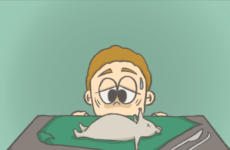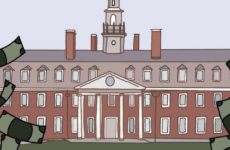Every student has a unique learning style suited to their needs, whether it’s visual, verbal, auditory, or kinesthetic. Choate exposes its students to a variety of learning styles, offering students the opportunity to be open to different ways of learning. At Choate, the way a class is taught depends on the subject; for instance, STEM classes usually involve more hands-on learning, whereas Humanities classes are more discussion-based. However, many Choate classes are missing a less traditional but interactive and captivating activity: field trips.
Field trips spark curiosity and interest in the subject, engaging students with the subject in a world beyond our campus. Scientific studies have long supported the theory that field trip experiences are both more engaging and memorable. A study published in Science Education found that students on field trips expressed particular enthusiasm in the experience and were more likely to have future interest in subjects related to the trip. Another study published in the Curator: The Museum Journal interviewed a group of twenty adults and found that over 90% could remember a field trip they had taken during elementary school as well as a specific detail such as their age at the time of the trip. Field trips not only help spark students’ curiosity in the class but also create a memory that will probably stay with them for years to come. It also provides a much-needed change of pace to the usual classroom environment. Clearly, field trips impact students’ performance during school and as they enter the workforce.
Apart from a few arts classes and Arts Concentration, field trips are an uncommon occurrence at Choate, likely because there seem to be limited options for field trips. Connecticut, however, is home to many renowned sites and museums, such as the Mark Twain House, Gillette Castle, and more. At these locations, students can examine primary sources to help them gain more outside context for their course. Interactions with the real world and visual learning encourage more critical thinking and gives texture what the lessons of the classroom.
Despite the availability of potential field trip locations nearby, it is often difficult for Choate students to go on field trips without sacrificing other commitments. Missing a whole day of class means an immense make-up workload for most, and the variety of students’ commitments in the afternoon means there isn’t a single period of time when all students in one class might be free.
Yet during the midterm, many exhausted students approach their classes without any enthusiasm and passion. Bringing the class outside, as little as once a month, can reinvigorate the class.
Choate teaches students that one learning style does not fit everyone, and since most classes are heavily classroom-based, more field trips should be offered so all students can be exposed to more interactive learning. Field trips are not just enjoyable, but enrich a student’s education. They can transform a student’s career by helping them develop an advanced interest in a particular field and inspire further exploration.




